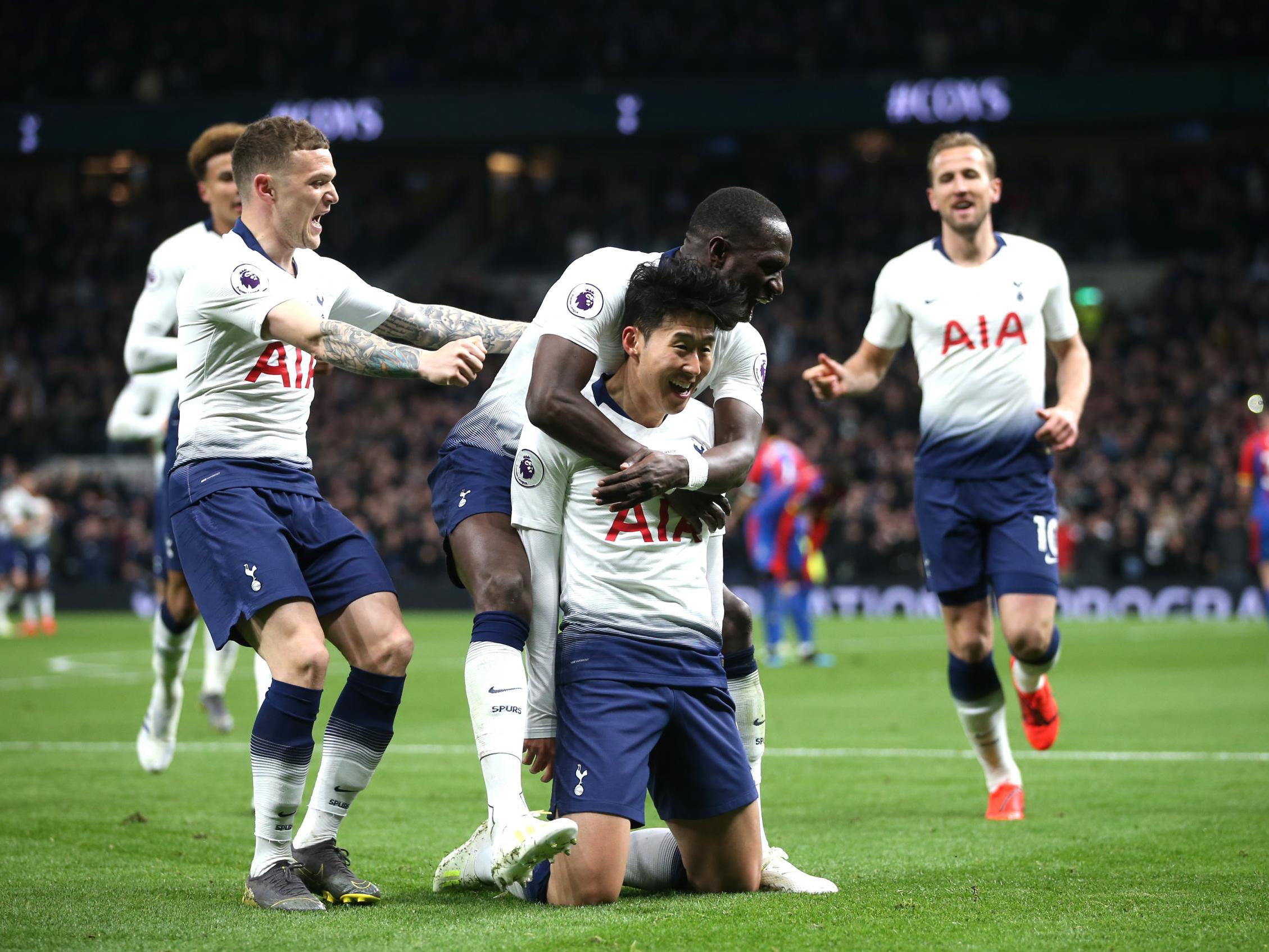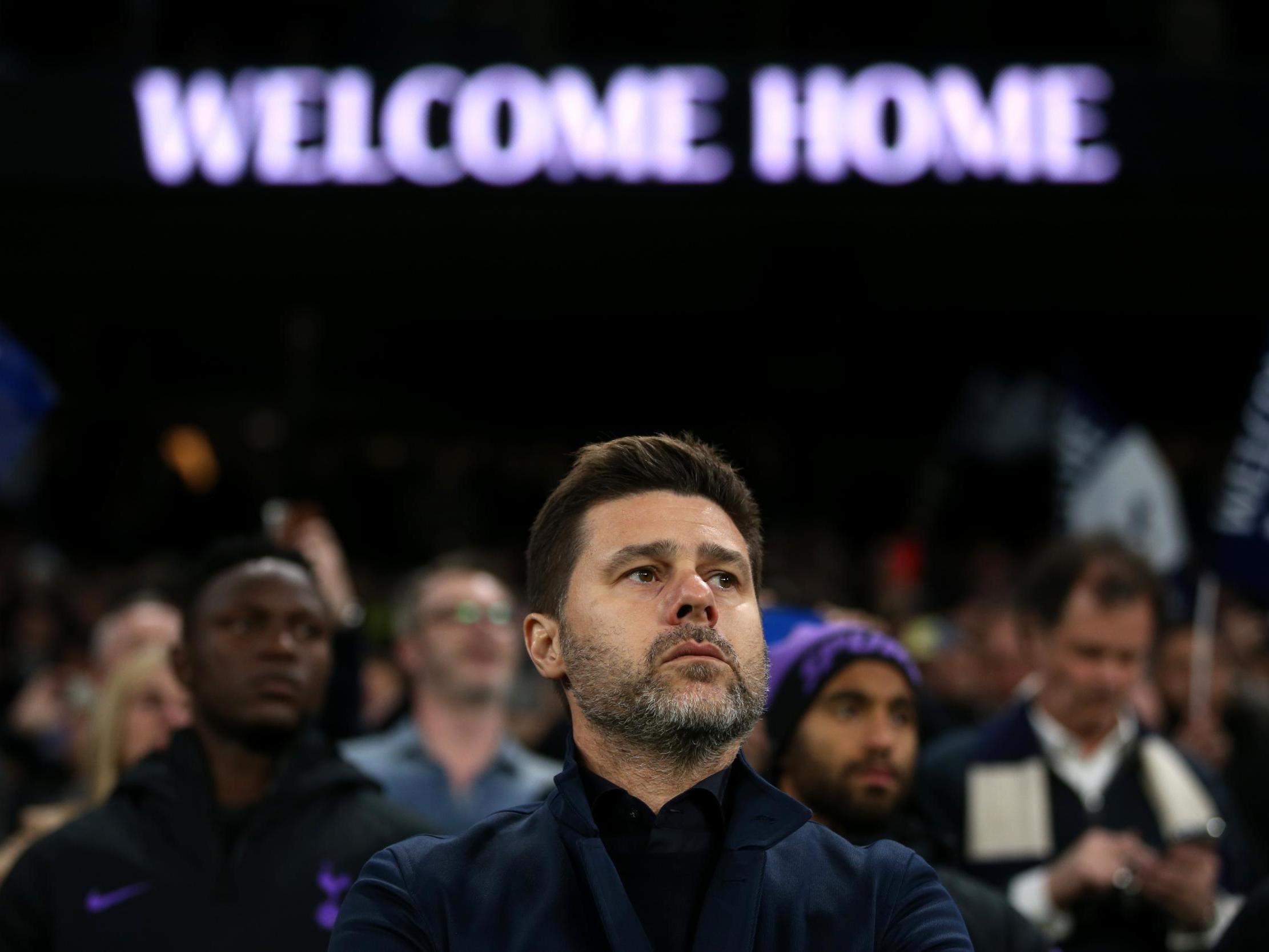Tottenham beat Liverpool to set new world-record with £113 million annual profit
Spurs failed to buy a player as they made the transition into their £1 billion new stadium

Your support helps us to tell the story
From reproductive rights to climate change to Big Tech, The Independent is on the ground when the story is developing. Whether it's investigating the financials of Elon Musk's pro-Trump PAC or producing our latest documentary, 'The A Word', which shines a light on the American women fighting for reproductive rights, we know how important it is to parse out the facts from the messaging.
At such a critical moment in US history, we need reporters on the ground. Your donation allows us to keep sending journalists to speak to both sides of the story.
The Independent is trusted by Americans across the entire political spectrum. And unlike many other quality news outlets, we choose not to lock Americans out of our reporting and analysis with paywalls. We believe quality journalism should be available to everyone, paid for by those who can afford it.
Your support makes all the difference.Tottenham posted a world-record annual profit for a football club of £113 million in 2017/18, beating the £106 million mark announced by Liverpool in February for the same season.
The north London club's bottom line was revealed in an impressive set of accounts on Thursday, the morning after they played their first Premier League game at the new, 62,000-capacity Tottenham Hotspur Stadium.
Spurs had spent just over £1 billion on that stadium and their new training ground as of the end of June 2018, with nearly half of that amount being spent in the 2017/18 financial year.
Much of that has been financed by secured loans from Bank of America, HSBC, Investec and Goldman Sachs, and Spurs owed a total of £461 million at the end of the financial year, although the club have since extended their loan from Bank of America and Goldman Sachs by another £100 million.
There appears to be little danger, though, of these loans becoming a millstone for a club that look in good shape on and off the field.
The huge net profit was based on an underlying operating profit of £157 million, more than double the figure for the year before, with turnover increasing to £381 million, up from £310 million.
There are three main factors behind Spurs' impressive growth: a full season of playing at Wembley, which boosted matchday turnover from £45 million to £71 million, reaching the knockout stage of the Champions League, worth £53 million in prize money, and much improved commercial income of £109 million.
These improvements made up for a slight dip in the club's broadcast revenue, down £2 million to £148 million, which was a result of Spurs finishing third in 2018, as opposed to second in 2017.

Spurs remain sixth in the Premier League's revenue table behind Manchester United, Manchester City, Liverpool, Chelsea and Arsenal, but the gap to their north London rivals was just £22million last season. Spurs have also managed to double their income since 2014/15.
United still earned more than £200million more than Spurs, though, which underlines why Spurs chairman Daniel Levy has pushed so hard for the new stadium.
Levy's own pay last season actually fell from £6million to £3million, although the 2016/17 figure was boosted by a significant bonus linked to the stadium project.
The club's overall wage bill rose from £127million to £148million but these numbers are another indication of how well run Spurs are, as the 2017/18 figure is only £3million more than Everton's and half of United's.
And thanks to Levy's deal-making and manager Mauricio Pochettino's ability to bring young talent through from the academy, the total cost of Spurs' squad is less than Everton's and just over a third of City's.

The arrival of Serge Aurier, Lucas Moura and Davinson Sanchez saw Spurs make a rare loss of £32 million on player trading in 2017/18 but they still banked instalments from previous big sales, such as Kyle Walker, and they signed nobody during the last two transfer windows while letting a handful of fringe players go to bank another £1.3million.
Join our commenting forum
Join thought-provoking conversations, follow other Independent readers and see their replies
Comments